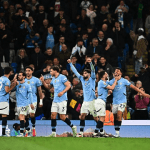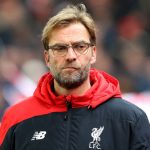For South Korean fans, 16 is an important number. Although the team will be competing in its eighth World Cup, and made the semi-finals when it co-hosted the tournament with Japan in 2002, it has never got through the group stages and into the round of 16 away from home.
Hopes are high for South Africa with one local company running an advertising campaign featuring captain Park Ji-Sung of Manchester United, in which the midfielder vows to lead his side to the final 16.
Fans expect the team to deliver.
In a recent national survey of 500 supporters, nearly half said South Korea needed to get that far at least.
They go into the tournament among a select group of just six nations to have qualified for seven World Cups in a row, along with Argentina, Brazil, Germany, Italy and Spain.
But unlike the rest, South Korea can only boast of one away win — a 2-1 victory over Togo in Germany 2006.
Currently 47th in the FIFA world rankings, they are the lowest among Argentina, Greece and Nigeria in Group B. But senior members of the team are confident they can break the round of 16 taboo.
“The players here don’t think the goal is just to reach the round of 16,” goalkeeper Lee Woon-Jae, who will be playing in his fourth World Cup, said this month.
“If things don’t go our way, then we’ll settle for making the final 16. As athletes, we have to aim high and we will all go there to win the trophy.”
Joining Lee and the team in South Africa will be about 150 members of the national fan club, known as the Red Devils. That’s only around one-third of the contingent that flew to Germany four years ago.
Security concerns in South Africa has put many off, to a point where Korean police and the foreign ministry plan to dispatch officials to protect the ones that are going.
Declining popularity of football may also be a factor why so few are travelling.
South Korea’s interest in the game has fluctuated, peaking in World Cup years and falling at other times. This year though it has slumped.
With the domestic K-League’s 15 clubs having played their first dozen matches this season, nine failed to fill even half of their stadiums.
Busan I’Park, coached by former World Cup star Hwang Sun-Hong, averaged just 4,000 fans per game in their cavernous, 54,500-seat World Cup stadium.
Football has been overshadowed by baseball, the nation’s most popular sport that attracted a record six million fans last season.
So popular is the sport that on weekends local cable stations broadcast football matches on tape delay after live baseball telecasts are over.
World Cup matches, though, will generate their share of interest with two of three South Korean games in the group stage beginning at 8:30pm local time, a prime slot. The other starts at 3.30am.
“I’ll definitely watch some action on TV,” said Kim Jung-Hwan, a 30-year-old who works for a trading company in Seoul. He was a student during the last two World Cups and watched all the games among a sea of other red-clad fans.
But, like others from back then, he is now married and has a demanding job. Kim will leave his red t-shirt in his closet this year.
“I don’t think I can be out in the streets at three in the morning on a weekday watching football,” he said with a smile. “I’ve got a life now.”
- Soccer News Like
- Be the first of your friends!





















ABOUT THE AUTHOR
SoccerNews
Soccernews.com is news blog for soccer with comprehensive coverage of all the major leagues in Europe, as well as MLS in the United States. In addition we offer breaking news for transfers and transfer rumors, ticket sales, betting tips and offers, match previews, and in-depth editorials.
You can follow us on Facebook: Facebook.com/soccernews.com or Twitter: @soccernewsfeed.